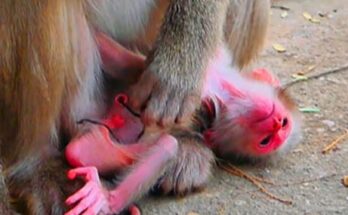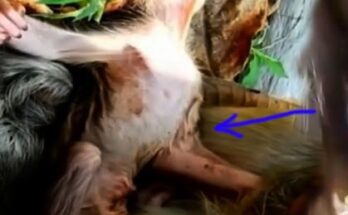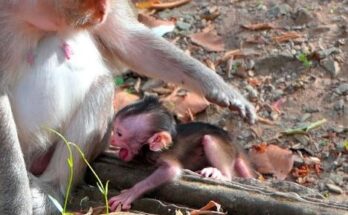In the intricate social structures of primate troops, motherhood is typically revered as a central aspect of female identity. However, in rare cases, some female monkeys appear to reject the traditional maternal role, displaying an unusual aversion to infants within their troop. These so-called “motherhood rejectors” challenge our understanding of primate behavior and raise compelling questions about the nature of maternal instincts.
Defying Instincts: The Case of the Motherhood Rejector
Most female monkeys exhibit strong maternal behaviors, including nurturing, grooming, and protecting their offspring. However, occasional outliers emerge—females who not only neglect their own young but may even show aggression toward them or other infants in the group. These motherhood rejectors defy expectations and intrigue primatologists, as their behavior contradicts the common belief that maternal instincts are innate and universal.
One well-documented case involved a rhesus macaque (Macaca mulatta) in a research colony. This particular female, despite reaching sexual maturity and giving birth, repeatedly abandoned her infants shortly after birth. Unlike other mothers, who cradled and nursed their babies, she showed no interest in feeding or grooming them. When forced into close proximity with her offspring, she displayed signs of stress, sometimes even pushing them away. Such behavior led to high mortality rates among her infants, as newborn monkeys are heavily dependent on maternal care.
Why Do Some Female Monkeys Reject Motherhood?
The phenomenon of motherhood rejection in monkeys has multiple potential explanations, ranging from biological to environmental factors.
- Hormonal Imbalances: Scientists suspect that variations in hormone levels, particularly oxytocin and prolactin, play a role in maternal rejection. Oxytocin, often dubbed the “love hormone,” is crucial for bonding between a mother and her baby. If a female monkey has lower oxytocin levels, she may not experience the typical urge to care for her offspring.
- Early Life Trauma: A female monkey’s own upbringing significantly influences her maternal instincts. If she was neglected or abused as an infant, she may fail to develop the necessary social and emotional skills to care for her own young. In primate troops, mothering skills are often learned through observation, meaning a female without positive maternal role models might struggle with parenting.
- Stress and Social Hierarchy: Social rank can also contribute to maternal rejection. Low-ranking females in a highly competitive troop may experience chronic stress, which can suppress maternal behaviors. When resources are scarce, some females may abandon their young as a survival strategy, prioritizing their own well-being over reproduction.
- Personality and Genetic Factors: Just like in humans, individual temperament varies among monkeys. Some females may naturally be less nurturing or more independent, making them less inclined to care for their young. Genetic predisposition could also play a role, as some primates may inherit traits that make them more or less maternal.
Impact on the Troop
Motherhood rejection can have significant consequences for both the mother and the troop. In species with strong maternal bonds, such as baboons and macaques, an abandoned infant’s survival chances are slim unless another female steps in as an “allomother.” In some cases, high-ranking females may adopt or care for neglected infants, ensuring the troop’s stability. However, in more hierarchical societies, rejected infants often die, reducing reproductive success and impacting the group’s genetic diversity.
Conclusion
While rare, the phenomenon of the motherhood rejector provides valuable insight into primate social behavior and the complexities of maternal instincts. Understanding why some female monkeys reject their offspring helps researchers explore the interplay of biology, environment, and social structures in shaping animal behavior. These cases challenge the assumption that maternal care is purely instinctive, highlighting the diversity of behaviors even within a single species.


